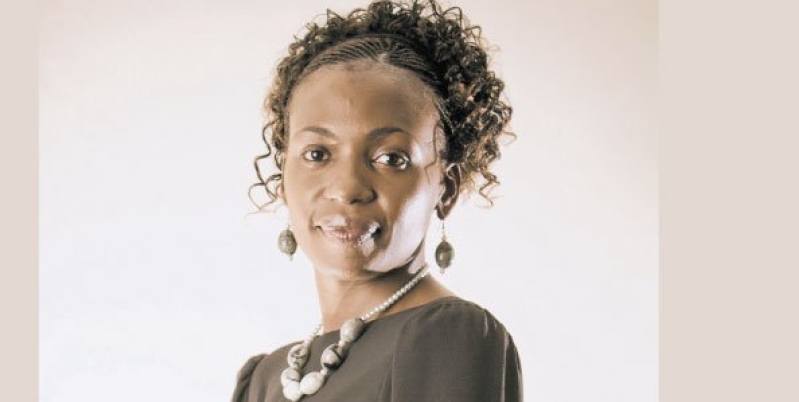
A Christian pastor who was shunned by her community after she was abducted and gang-raped on her wedding day has shared how her faith has allowed her to forgive her persecutors.
"I have forgiven my attackers," pastor Terry Gobanga of Kenya told the BBC. "It wasn't easy but I realized I was getting a raw deal by being upset with people who probably don't care. My faith also encourages me to forgive and not repay evil with evil but with good."
Several years ago, Gobanga was looking forward to her wedding day, preparing to marry her fiance, Harry, in All Saints Cathedral in Nairobi. Her entire church and large family was there.
However, what should have been the happiest day of her life turned into a nightmare.
The day of her wedding, while walking home from the bus station, Gobanga was suddenly pulled into a car by an unknown assailant.
"I walked past a guy sitting on the bonnet of a car - suddenly he grabbed me from behind and dumped me in the back seat," she recalled. "There were two more men inside, and they drove off. It all happened in a fraction of a second.
"A piece of cloth was stuffed in my mouth. I was kicking and hitting out and trying to scream. When I managed to push the gag out, I screamed: 'It's my wedding day!' That was when I got the first blow. One of the men told me to 'co-operate or you will die'."
She told BBC that the men then took turns raping her.
"I felt sure I was going to die," Gobanga admitted. "I was still fighting for my life, so when one of the men took the gag out of my mouth I bit his manhood. He screamed in pain and one of them stabbed me in the stomach. Then they opened the door and threw me out of the moving car.'
The young woman was finally rescued after a child saw her thrown from the car and called her grandmother, who called the police. They picked her up and, thinking she was dead, drove for the mortuary, but on the way there she coughed so they took her to hospital instead.
"I was half-naked and covered in blood, and my face was swollen from being punched," she said. "But something must have alerted the matron, because she guessed I was a bride. 'Let's go around the churches to see if they're missing a bride,' she told the nurses."
When they heard where she was, her parents and fiance went to the hospital with all the guests.
While in the hospital, Gobanga was informed she could not have children as she had been stabbed in the womb. Devastated, she repeatedly apologized to Harry for letting him down.
"Some people said it was my own fault for leaving the house in the morning. It was really hurtful, but my family and Harry supported me," she said.
The couple began to plan another wedding, which took place in July 2005. However, just 29 days later, Harry died of carbon monoxide fumes after an accident with a charcoal burner.
"Going back to church for the funeral was terrible," Gobanga said. "Just a month earlier I had been there in my white dress, with Harry standing at the front looking handsome in his suit. Now, I was in black and he was being wheeled in, in a casket."
The traumatic events made the young woman question her faith: "I felt let down by God, I felt let down by everybody. I couldn't believe that people could be laughing, going out and just going about life. I crashed.
"One day I was sitting on the balcony looking at the birds chirping away and I said: 'God, how can you take care of the birds and not me?' In that instant I remembered there are 24 hours a day - sitting in depression with your curtains closed, no-one's going to give you back those 24 hours. Before you know, it's a week, a month, a year wasted away. That was a tough reality."
God had a better plan for her life, however. Eventually, she fell in love with a friend, Tony Gobanga, and the two decided to get married.
"It was three years after my first wedding, and I was very scared. When we were exchanging vows, I thought: 'Here I am again Father, please don't let him die.' As the congregation prayed for us I cried uncontrollably."
Miraculously, Gobanga concieved a year later, and today, the couple has two daughters Tehille and Towdah. Gobanga shares her story in a book, Crawling out of Darkness, and has also set up an organization that offers counseling and support to rape survivors.
As many as eight out of 10 Kenyan women have experienced physical violence and/or abuse during childhood, according to The Guardian, and a report from Kenya's national commission on human rights in 2006 found that a girl or woman is raped every 30 minutes.
To combat this, a US-based NGO called No Means No Worldwide has developed a rape-prevention program, which teaches girls how to defend themselves when confronted.
"The girls learn to shout - 'Hands off my body!' - and throw an elbow jab or good kick to the groin," explains a report from Stanford Medicine. "The boys are encouraged to stand up for the girls and fight against the social traditions that have normalized rape. Perhaps most effectively, the children learn how to talk themselves out of precarious situations, use clever diversions and speak loudly when faced with potential attackers, through a series of role-playing exercises that promote healthy gender norms.
The behavioral intervention appears to be working. Observational studies have inferred that the incidence of rape has dropped dramatically - perhaps even by half."






